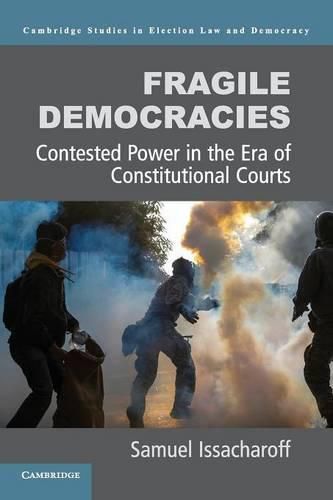Readings Newsletter
Become a Readings Member to make your shopping experience even easier.
Sign in or sign up for free!
You’re not far away from qualifying for FREE standard shipping within Australia
You’ve qualified for FREE standard shipping within Australia
The cart is loading…






Twenty-five years after the fall of the Berlin Wall, the democratic ascendency of the post-Soviet era is under severe challenge. While fragile democracies in Eastern Europe, Africa, and East Asia face renewed threats, the world has witnessed the failed democratic promises of the Arab Spring. What lessons can be drawn from these struggles? What conditions or institutions are needed to prevent the collapse of democracy? This book argues that the most significant antidote to authoritarianism is the presence of strong constitutional courts. Distinct in the third wave of democratization, these courts serve as a bulwark against vulnerability to external threats as well as internal consolidation of power. Particular attention is given to societies riven by deep divisions of race, religion, or national background, for which the courts have become pivotal actors in allowing democracy to take root.
$9.00 standard shipping within Australia
FREE standard shipping within Australia for orders over $100.00
Express & International shipping calculated at checkout
Stock availability can be subject to change without notice. We recommend calling the shop or contacting our online team to check availability of low stock items. Please see our Shopping Online page for more details.
Twenty-five years after the fall of the Berlin Wall, the democratic ascendency of the post-Soviet era is under severe challenge. While fragile democracies in Eastern Europe, Africa, and East Asia face renewed threats, the world has witnessed the failed democratic promises of the Arab Spring. What lessons can be drawn from these struggles? What conditions or institutions are needed to prevent the collapse of democracy? This book argues that the most significant antidote to authoritarianism is the presence of strong constitutional courts. Distinct in the third wave of democratization, these courts serve as a bulwark against vulnerability to external threats as well as internal consolidation of power. Particular attention is given to societies riven by deep divisions of race, religion, or national background, for which the courts have become pivotal actors in allowing democracy to take root.